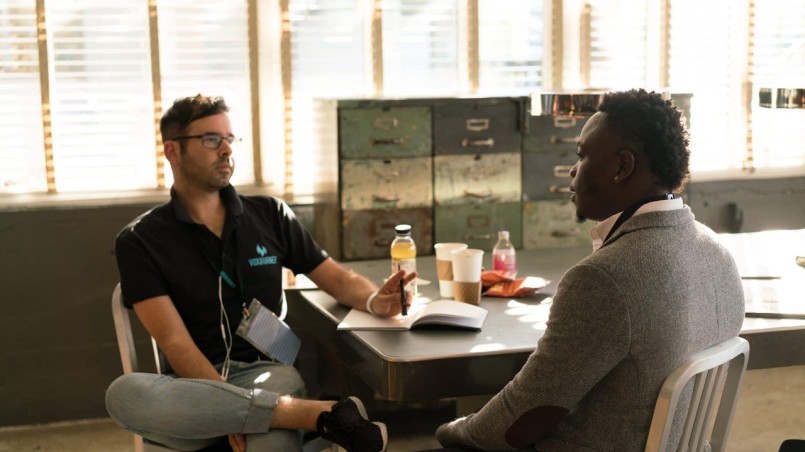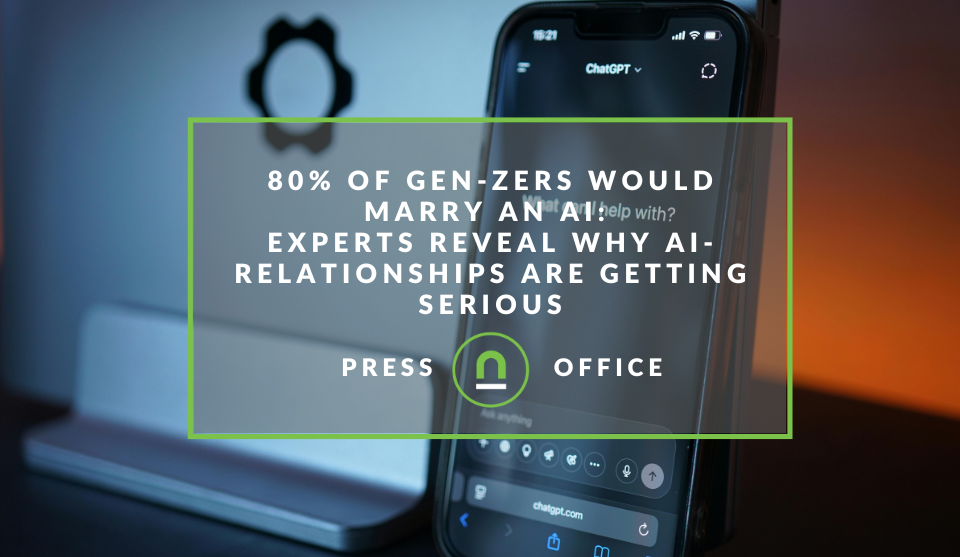Recent posts

Money Talks
XRP vs. Stablecoins: Which Is Better for Cross-Border Payments in 2026?
28 January 2026

Press Releases
Sleep Expert Cautioning Against TikTok’s ‘Mouth Taping’ Trend
28 January 2026

Press Releases
Why Vintage Watches Are the Hottest Trend in 2026
27 January 2026

Press Releases
Africaworks Accelerates The Rollout Of Real Estate Investment Platform
20 January 2026
Popular posts
Extravaganza
Trending Music Hashtags To Get Your Posts Noticed
24 August 2018
Geek Chic
How To Fix iPhone/iPad Only Charging In Certain Positions
05 July 2020
Extravaganza
Trending Wedding Hashtags To Get Your Posts Noticed
18 September 2018
Money Talks
How To Find Coupons & Vouchers Online In South Africa
28 March 2019
Debugging Conflict in The Workplace
24 May 2018 | 0 comments | Posted by Ridhwaan Harnaker in Industry Experts
Ridhwaan Harnaker, experienced life coach and relationship specialist, guides us through how Entrepreneurs can correctly handle conflict in the workplace. Learn how to handle those sticky situations with both clients, employees and colleagues.
A “How to” for entrepreneurs to resolve conflict with clients and co-workers
Entrepreneurs in the digital age face an extraordinary challenge, while technology allows you to play many roles within your business, you must also deal with all the issues that accompany those roles. Clarifying the client brief, negotiating rates, completing the deliverable, following up on revisions, payments, etc. It can all get a bit much. In this article, I’ll show you how to identify the cause of the conflict and I’ll give you the coaching solution.
Taking a holistic look at the entire situation
Imagine for a moment… That your mind worked like a pc/smartphone. To get certain tasks done, it simply activates certain neural pathways programmed to execute that task, much like an app. We all have our favourite “Go-to” apps, understandably though, each app has limitations as to what it’s able to do.
The implications being:
- You could “get stuck” inside the limitations of the app when using only one app
- The limitations of the app directly impact your results
- Other users, like clients or co-workers, using the same app are subjected to the same limitations, creating frustration and cause for conflict
- Anyone using a more advanced app would most likely have better results
- In a group, the efforts of those with more advanced apps are stunted by users with basic apps, creating frustration and cause for conflict
So to recap, if collaborators are:
- using the same app; it can cause conflict due to its inherent limitations
- using different apps; it can also cause conflict due to the limitations imposed by those using basic apps
As individuals we have 6 developmental stages that we go through before reaching Personal Mastery, collectively groups are subjected to the same 6 stages, their advancement is usually dependent on the level the leader reaches personally. Each stage functions like an app. It produces a clearly defined set of results and has built-in limitations. Two or more people functioning in the same stage will all be frustrated by the limited results. As for those in different stages, the ones who are ahead can resent the ones who are behind and vice versa.
2 Key takeaways from this post
- It doesn’t matter what stage you are, or what role you play; you will experience limitations and it can be the cause for conflict
- The limitation doesn’t have to be a cause for conflict, it can be an opportunity for growth, learning and development
The six stages of conflict resolution
- Decision Making Having competing interests keeps you from taking decisive action. The cost being that your ideas seldom become a reality. E.g., a client who can’t decide what they want their website to do or the graphic designer who keeps coming up with new drafts instead of submitting them to the client.
- Second-guessing yourself
- Difficulty committing
- Fear of failure and regret
- Feeling Lost Growth usually involves stepping out of your comfort zone, the uncertainty can feel unbearable and you may feel completely alone. Consider yourself as an entrepreneur, overly focused on work/life, never having a balance between the two and then the inevitable chaos that ensues.
- Second-guessing yourself
- Use of coping mechanisms
- Numbing out
- Addictive/compulsive behaviour
- Loss There’s an ever-present choice you’re faced with, “What you have” versus “What you want”. One of the hardest things about moving forward is letting go of people, places or things that no longer work for you. This may take the form of clients, co-workers, projects, or even your brand. Even though some losses may not be tangible it may still be prohibitive nonetheless.
- Risk Aversion
- Grief
- Loss of Identity
- Overwhelm Newfound success usually brings with it new challenges. What starts as celebrating new opportunity can soon lead to
- Increased complexity
- Complacency
- Loss of focus
- Simplicity Bearing in mind what you ultimately want, this stage is about finding simplicity, letting go of excess and discovering what the most effective actions are for you to succeed.
- Feeling like you need to keep learning
- Knowing what to do, but not taking action
- Self Mastery Armed with the knowledge of what works, this stage requires taking action. Your willingness to do so may vary on any given day depending on circumstances that arise.
- A sense of personal power fluctuates between powerless and masterful
Issues that arise in this stage:
Coaching yourself Through:
Identifying the competing factors and finding the option that has the greatest alignment to what you want, then taking irreversible action and committing to the path ahead.Issues that arise in this stage:
Coaching yourself Through:
Waking up to the suffering you’re avoiding. Identifying what works and what doesn’t. Finding the resources and actions aligned with what you want.Issues that arise in this stage:
Coaching yourself Through:
Quantifying the Risk vs Reward, making conscious decisions in favour of what you want; and in the process letting go of what no longer works for you.Issues that arise in this stage:
Coaching yourself Through:
Learning to celebrate the wins and not get distracted by them. Remaining focused on increasing your capacity to make the most of the opportunities that arise.Issues that arise in this stage:
Coaching yourself Through:
Identifying the simplest actions that create the biggest results, leveraging your efforts by implementing systems in response to daily demands.Issues that arise in this stage:
Coaching yourself Through:
The sense of personal power fluctuates between powerless and masterfulHow this plays out
Consider a client in Stage 1 (Decision making), they will be undecided on how to proceed, the brief always changing. If you’re in Stage 3 (Loss), you could potentially walk them through the decision-making stage and even through Stage 2 where they would feel lost as they move beyond their comfort zone; but that’s about as far as you’ll get. The problem is, as long as you’re in Stage 3 (Loss), you’re going to be clock-watching.
Ever wary that you’re losing minutes or hours that you won’t get back, worried you’ve spent too much time and will be losing in one way or another. In this situation conflict could arise as a result of the client experiencing you as pushy, and/or you experiencing the client as a “time-waster”.
Let’s look at another instance, imagine yourself in Stage 5 (Simplicity), clear on what actions need to be taken. The project timeline has been drawn up, all that’s required is execution. If your co-worker is in Stage 4 (Overwhelm), they may not deliver timeously. A recipe for disaster.
The way forward…
This model for conflict resolution requires you, the entrepreneur, to take responsibility for the stage you’re in and the contribution to the conflict which arises. If we switch back to the app analogy, then the most masterful thing you could do is to recognize that each app can deliver part of a result.
You can use different apps to achieve various degrees of the result you want and much like the client who hires’ you to solve their problems, you too can call on additional resources like a coach or consultant to assist you with yours.
I’ve spent years creating tools for each stage and I’m happy to share them with you. Drop me a line here and I’ll be in touch!
Ridhwaan Harnaker
Life Coach - Life Coach Trainer - Relationship and Sex Addiction Specialist
Visit for more info: www.ridhwaanharnaker.com
About the author
Ridhwaan coaches and provides consulting services to C-Level executives of Small and Medium Enterprises; developing bespoke interventions to refine systems, boost productivity, and increase profitability. His workshops on personal growth and business development, have been delivered at tertiary level for the MBA Program at Tshwane University of Technology’s Business School, in Pretoria.
Ridhwaan also runs The Coach Incubator - A Life Coach Training Program aimed at offering affordable world class training. His vision is to make high-quality Life Coaching accessible to those who need it. He appears regularly on radio and runs short courses on Success, NLP, Relationships, and his speciality, Sex Addiction.
Contact us
If you feel inspired and want to contribute with a guest post then don’t be shy we’re happy to assist. Simply contact us
You might also like
80% of Gen-Zers Would Marry an AI
19 January 2026
Posted by Steph M in Press Releases
Experts reveal why AI relationships are getting serious, and the reasons why 4 in 5 young people are open to marrying ai as human dating becomes too ...
Read moreXRP vs. Stablecoins: Which Is Better for Cross-Border Payments in 2026?
28 January 2026
Posted by Pham Van in Money Talks
XRP or Stablecoins? Discover which wins for cross-border payments in 2026. Compare speed, costs, and stability in our latest global finance guide.
Read more{{comment.sUserName}}
{{comment.iDayLastEdit}} day ago
{{comment.iDayLastEdit}} days ago
 {{blogcategory.sCategoryName}}
{{blogcategory.sCategoryName}}

